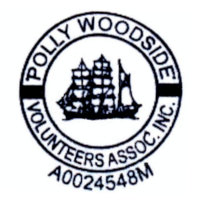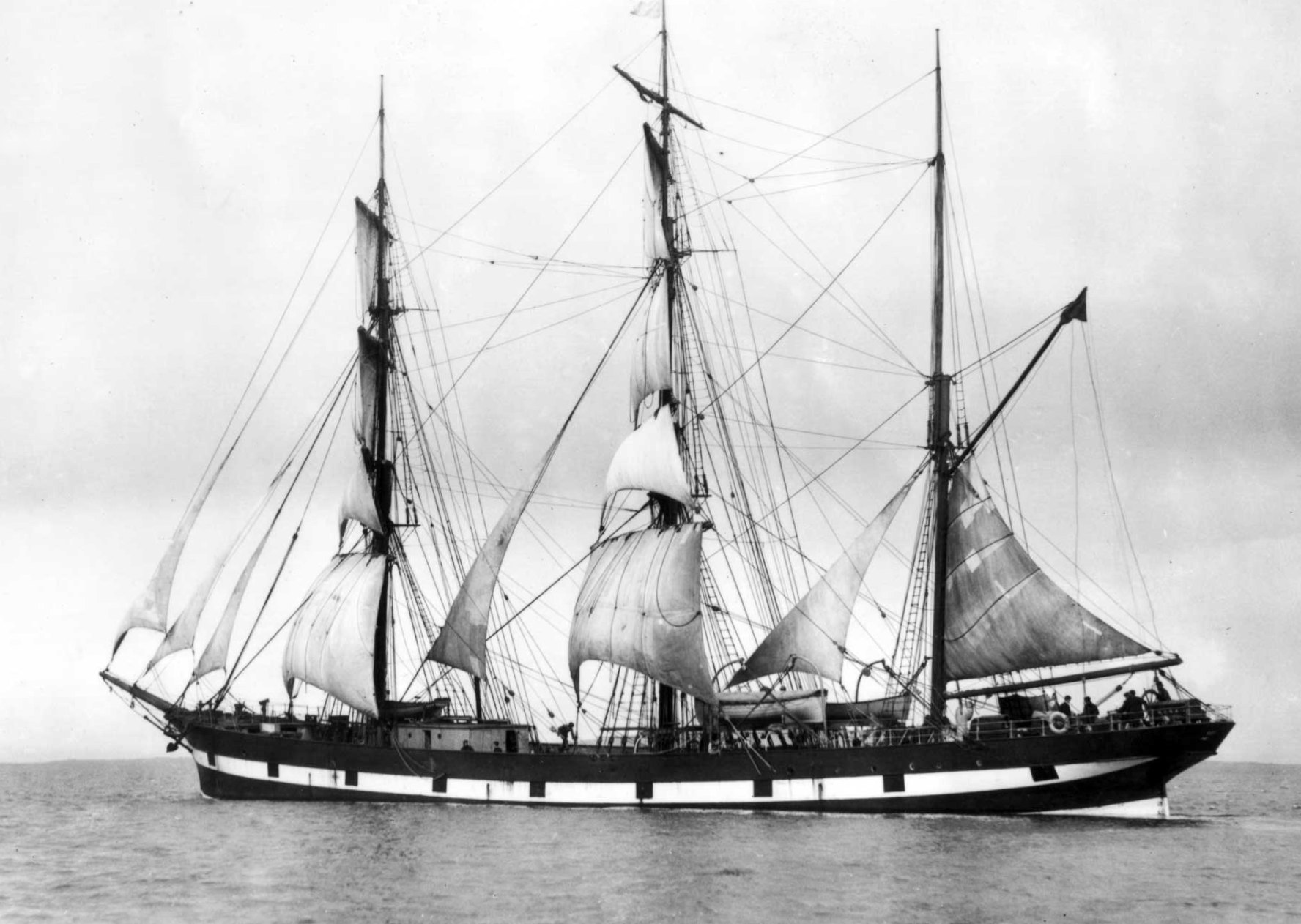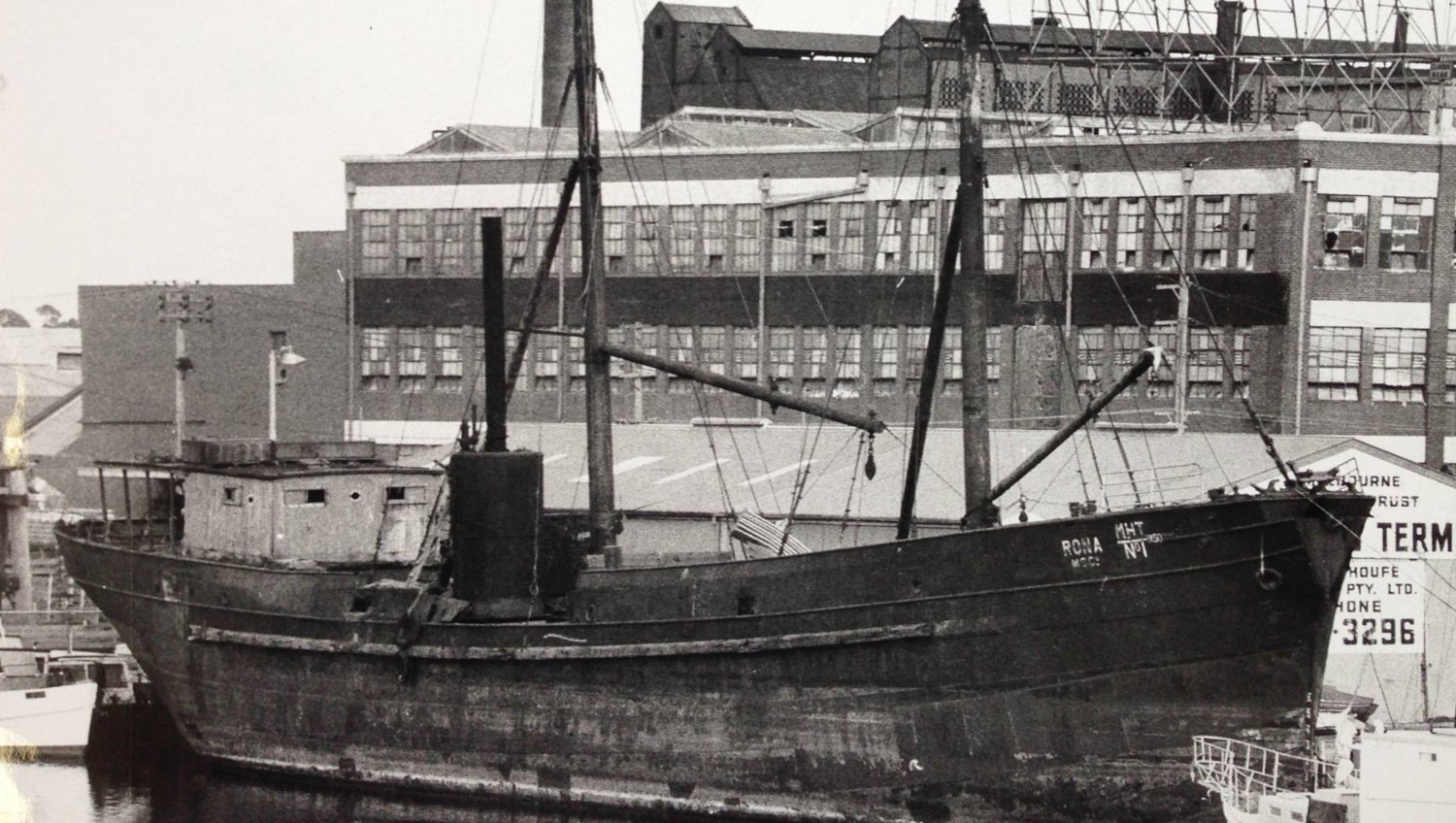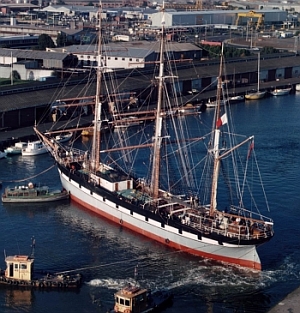

The PWVA
The Polly Woodside Volunteers' Association (PWVA) is an incorporated body set up in the 1970s to represent the volunteers who maintain the world-famous iron barque Polly Woodside.Latest News
Read the latest about Polly Woodside: See the WAVE newsletters here!"The Prettiest Vessel Yet Built in Belfast"
Polly Woodside is a three-masted sailing barque with an external cladding of iron plates. She was launched from the yards of Workman Clark in Belfast in 1885. Her early years were in general cargo, including the nitrate trade between the UK and South America. She made her first voyage to Australia in 1900, then was bought by New Zealand interests in 1904 and renamed Rona. She operated mainly between New Zealand and Australia, often carrying cargoes of timber.Saving Rona
In 1923 Rona became a coal hulk, employed bunkering steamships in Sydney and then Melbourne. She served in New Guinea in WWII and returned to Melbourne in 1946 to continue her role as a coal hulk. By the early 1960's she was destined to be scuttled in Bass Strait, until a group of ship enthusiasts, led by Karl Kortum and Dr Graeme Robertson, saw the potential for restoring the barque to her former glory.Polly Awarded World Ship Trust Medal
In 1968, Rona was handed over to the National Trust of Victoria. Over the next decade or she so was progressively restored, mainly by PWVA volunteers under the supervision of Captain G.H. Heyen MBE and Master Rigger Tor Lindqvist. In 1978, after reverting to her original name of Polly Woodside, she was moved to the historic Duke and Orr's dry-dock, maintained as a static exhibition by members of the PWVA.In 1988, the Polly Woodside became the first merchant ship in the world to be awarded the prestigious World Ship Trust Medal, putting her among the ranks of such famous vessels as Vasa (Sweden), Mary Rose and HMS Warrior (UK), USS Constitution (USA) and Jylland (Denmark).
By the 2000s Polly was a Melbourne icon, used for events, tourism and school visits, constantly maintained by the volunteers, who also looked after the dock, the historic pump room, a large research and photo library, numerous maritime artifacts, workshops, and the fascinating Melbourne Maritime Museum on South Wharf.
The Museum That Never Was
Unfortunately, at the same time the area surrounding Polly was undergoing massive development, and developers wanted the site. In 2006 the National Trust promised that if the PWVA vacated the premises, the Trust would build a new $3 million dollar maritime museum nearby. The volunteers co-operated and moved out. Then in 2008 the PWVA was given the staggering news that, without consultation, there would be no new museum, just the limited premises of a refurbished shed. Read the news from 2008 on this sad turning point for Victorian maritime history.In 2010 the National Trust decided it was too expensive to continue storing the Polly artifacts and sold some of the collection off at auction. Many items had been donated by the public to the museum under the impression that their historic mementos would be preserved, and it caused great distress in the local maritime community. See the Newsletter of December 2010 for a report. Since then the PWVA has kept going, striving to keep the ship maintained despite the setbacks. Please see our newsletter, published four times a year, for details of the association's ongoing activities.




